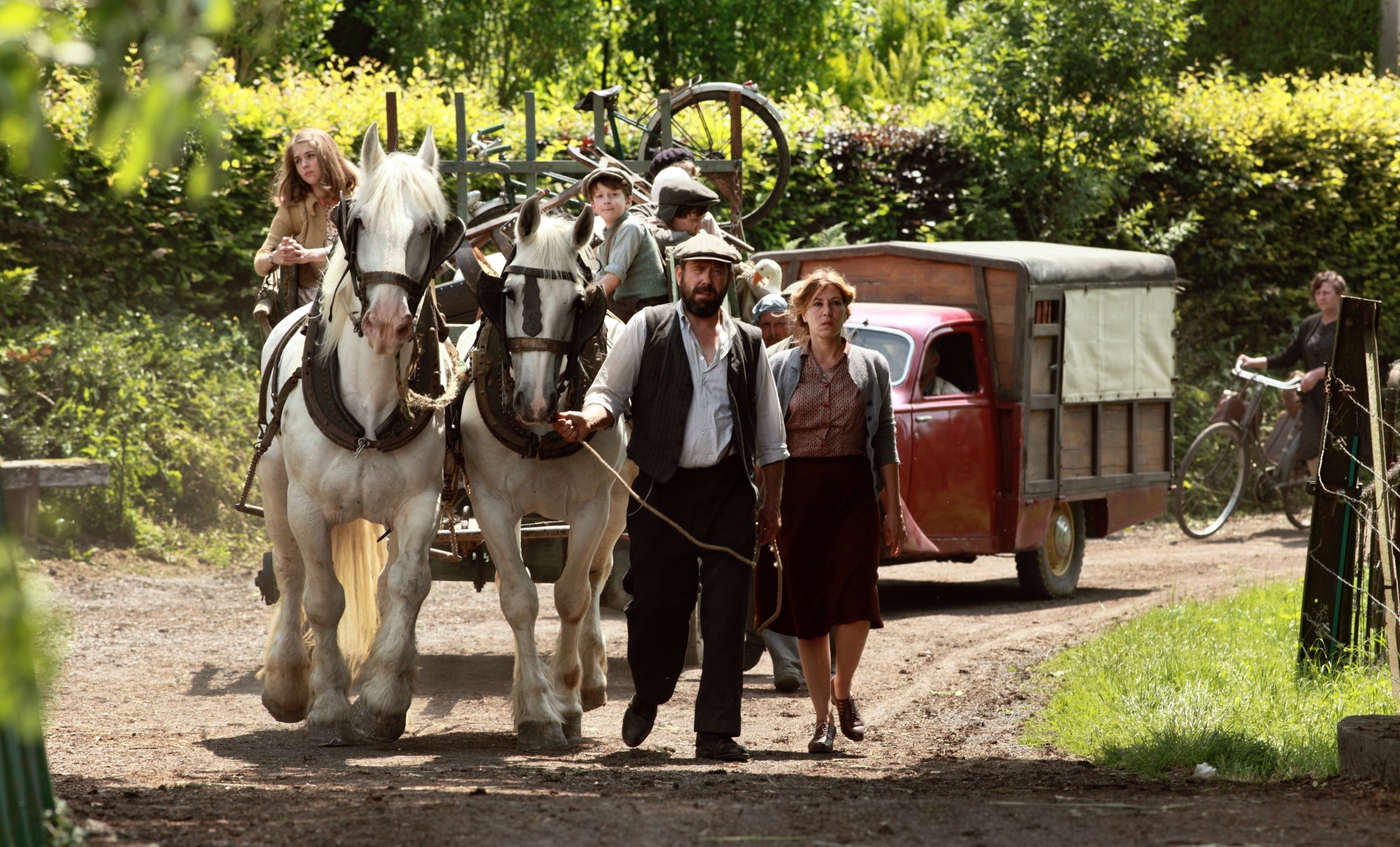
- Golden Globe Awards
Come What May (France)
You could call Come What May a semi-epic war story. It does not have big battle scenes focusing instead on how the epic battles affect ordinary citizens. The story takes place during the German invasion of France during World War II. All wars produce refugees and this story is very relevant today when 60 million refugees are currently displaced all over the world.Writer/director Christian Carion is not a novice in telling war stories. He first gained international notice with his pacifist WWI drama Joyeux Noel (2005). The film was based on real story in which French and German soldiers in the trenches stopped shooting one another for one day in order to celebrate Christmas together. Making historical films based on true stories became his passion. His successful dramatic thriller Farewell touched upon the time of the Cold War. His fellow directors, well known filmmakers Emir Kusturica and Guillaume Canet played spies passing Soviet military secrets to the Western intelligence. Carion was born into a farming family and initially went into farming himself before catching the directing bug. This experience might explain his deep psychological understanding of the of the people of the small farming village who in his latest film must flee the German advance into France.Come What May introduces the spectator to rural France of 1940 during, the German invasion which caught the country totally unprepared. German tanks are rolling into the country almost unopposed through the Belgian Ardennes, outflanking the so called impenetrable French defense, the Maginot Line. Eight million French people were ordered by the Government to flee the advancing Nazis and to relocate to supposedly safe areas deep into the country. This exodus of millions is still considered the largest in modern history. At the center of the narrative are the middle-aged mayor of a small village Paul (Olivier Gourmet) and a young schoolteacher Suzanne (Alice Isaaz), who is also a surrogate mother to Max, a displaced German boy whose political refugee father was interned by the French authorities as the “enemy national” as the invasion began.Together Paul and Susanne urge the villagers to heed the Government’s order and evacuate the town. That decision is not supported by everyone in the village, because fleeing on the open roads leaves them exposed to German aerial and ground attacks. In the parallel action in the film, father of Max – Hans (August Diehl) – gets out of French prison and embarks on a dangerous journey to look for his son. He is accompanied by an officer of the Scottish unit of the defeated British expeditionary force Percy (Matthew Rhys, The Americans), whose battalion was decimated by Nazis. Percy is stubbornly inclined to repatriate at any cost a set of Scottish bagpipes from his unit which are symbolically important to him.To make the film both an intimate story, but also an epic, the Carion was able to engage the genius of film scores, the Golden Globe winning Italian composer Ennio Morricone who was in his best element while writing the music for the film.

